CineTV Contest: Analysis of Dancer in the dark (2000) [ESP/ENG]
Hola, cinefilos de Hive! Hoy he decidido participar en el Cine TV Contest #125 con mi musical favorito hasta el momento: Dancer in the dark.
Haré un especie de análisis, pues no me voy a meter mucho la trama de la película para no dar spoilers. Simplemente será un análisis desde mi perspectiva como persona y como profesional. Espero les guste mucho.
Hello, Hive cinephiles! Today I decided to participate in Cine TV Contest #125 with my favorite musical so far: Dancer in the dark.
I'll do a kind of analysis, as I'm not going to get too much into the plot of the movie in order not to give spoilers. It will simply be an analysis from my perspective as a person and as a professional. I hope you like it a lot.
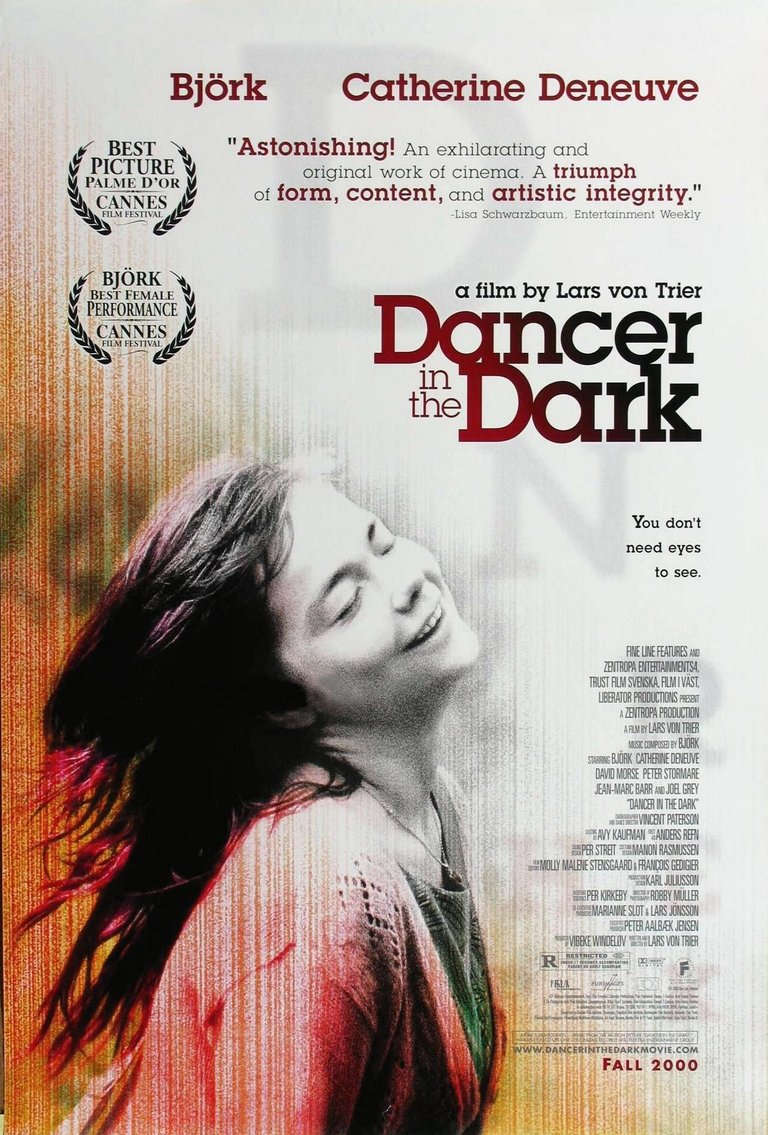
Dancer in the dark (2000) es una obra que nos entrega el gran Lars von Trier la cual en lo personal fue muy desgarradora. Un musical que rompe con todas las expectativas que se tienen del género al combinar canciones y melodías llenas de fantasía con una realidad cruda y desgarradora. Protagonizada por la cantante Björk, la película conmueve profundamente al espectador ya que aborda temas como la vulnerabilidad humana, la injusticia social, el sacrificio y el amor maternal.
Dancer in the dark (2000) is a work that gives us the great Lars von Trier which personally was very heartbreaking. A musical that breaks all expectations of the genre by combining songs and melodies full of fantasy with a raw and heartbreaking reality. Starring singer Björk, the film deeply moves the viewer as it addresses issues such as human vulnerability, social injustice, sacrifice and maternal love.
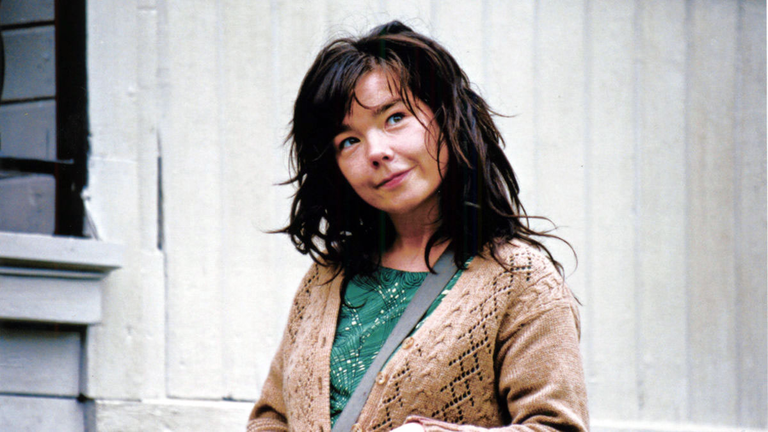
Desde el inicio de la trama, somos testigos de como es la vida de Selma (Björk), una mujer inmigrante con una enfermedad genética que la condenará a perder la vista permanentemente. Como artista innata, trata de convertir su sufrimiento en algo hermoso a través de la música y en su mente esos momentos de dolor, son convertidos en un musical. Estos escapes de realidad que suele tener son como un respiro en medio de todo lo malo que le pasa, así que esto se podría interpretar como una representación de cómo el arte puede ser un refugio frente a tanto sufrimiento.
From the beginning of the plot, we witness the life of Selma (Björk), an immigrant woman with a genetic disease that will condemn her to lose her sight permanently. As an innate artist, she tries to turn her suffering into something beautiful through music and in her mind those moments of pain are turned into a musical. These escapes from reality that she often has are like a respite in the midst of all the bad things that happen to her, so this could be interpreted as a representation of how art can be a refuge from so much suffering.
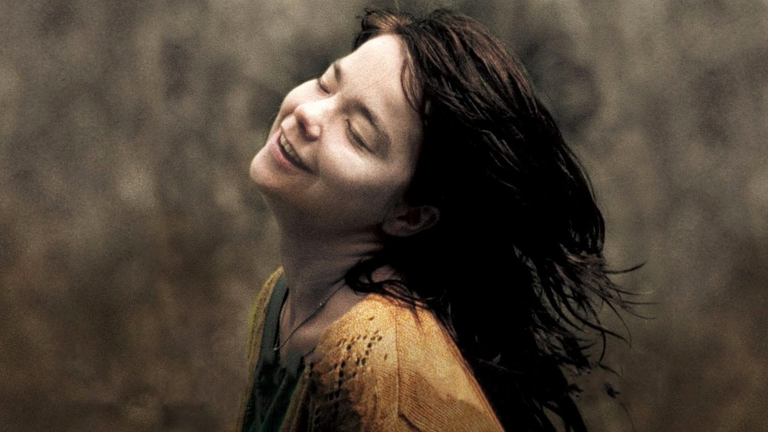
Desde mi perspectiva como psicóloga, Selma es un ejemplo de amor desinteresado, pues ella literal sacrifica todo, incluso su propia bienestar por su único hijo, tanto que se puede malinterpretar como obsesión, ya que ella tiene la fuerte creencia de que su sufrimiento será premiado. Esto me lleva a plantearme hasta que punto somos capaces de sacrificar tantas cosas por una persona que amamos, sin siquiera pensar en nuestra propia vida. Menciono esto porque en un punto de la película llegue a pensar que Selma realmente no quería vivir y que permanecía de pie únicamente para salvar a su hijo, pues por desgracia él también había heredado la misma condición de ella.
From my perspective as a psychologist, Selma is an example of selfless love, as she literally sacrifices everything, even her own well-being for her only son, so much so that it can be misinterpreted as obsession, as she has a strong belief that her suffering will be rewarded. This leads me to wonder to what extent we are capable of sacrificing so many things for a person we love, without even thinking about our own life. I mention this because at one point in the film I came to think that Selma really didn't want to live and that she was standing up only to save her son, as unfortunately he had also inherited the same condition from her.
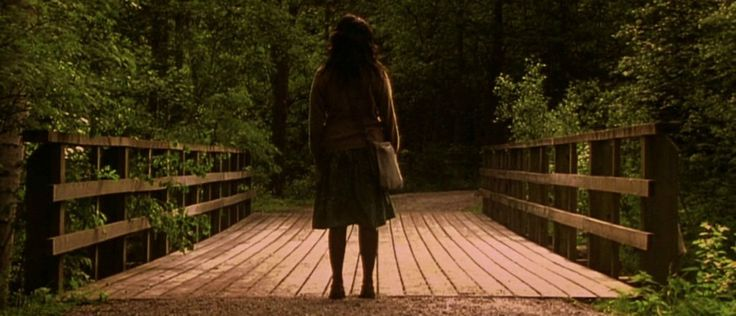
Von Trier utiliza un estilo fílmico vanguardista iniciado por él mismo y Thomas Vinterberg en el año 1995, al cual llamaron Dogma 95. Consistía básicamente en conservar los valores tradicionales del cine excluyendo los efectos visuales elaborados con tecnología. Así que lo que hicieron fue crear una estética cruda, con cámaras en mano para lograr que el espectador se sintiera parte de la historia. Esta cercanía visual refuerza la sensación de incomodidad y podemos sentir la vulnerabilidad del personaje, algo que muy pocas películas logran. Contrasta con los momentos musicales, donde la realidad se altera un poco y se adentra en un espacio casi teatral, donde Selma encuentra consuelo y escape.
Von Trier uses an avant-garde film style initiated by himself and Thomas Vinterberg in 1995, which they called Dogma 95. It basically consisted of preserving the traditional values of cinema while excluding technologically elaborated visual effects. So what they did was to create a raw aesthetic, with handheld cameras to make the viewer feel part of the story. This visual closeness reinforces the sense of discomfort and we can feel the vulnerability of the character, something that very few films achieve. It contrasts with the musical moments, where reality is slightly altered and enters an almost theatrical space, where Selma finds solace and escape.
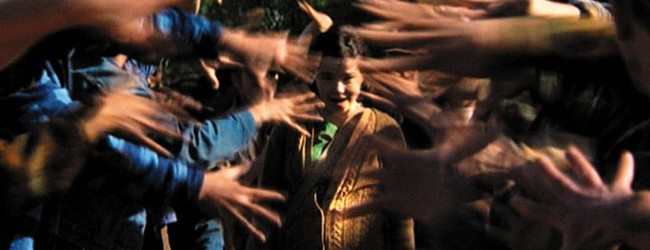
La película también nos habla de la injusticia social y como las figuras de poder tienden a usar todo lo que está en sus manos para perjudicar a otros siempre bajo el mismo objetivo, el beneficio propio. Como inmigrante, Selma enfrenta barreras económicas, legales y sobre todo culturales que la empujan hacia una tragedia inevitable. Es imposible no reflexionar sobre cómo las estructuras de poder fallan a las personas más vulnerables aprovechándose de ello, pues Selma siendo una persona incapacitada, sin ningún apoyo, tuvo un trágico final debido a una mala jugada por parte de ellos.
The film also tells us about social injustice and how figures of power tend to use everything in their power to harm others, always with the same objective, their own benefit. As an immigrant, Selma faces economic, legal and above all cultural barriers that push her towards an inevitable tragedy. It is impossible not to reflect on how power structures fail the most vulnerable people by taking advantage of it, as Selma being a disabled person, without any support, had a tragic end due to a bad move on their part.
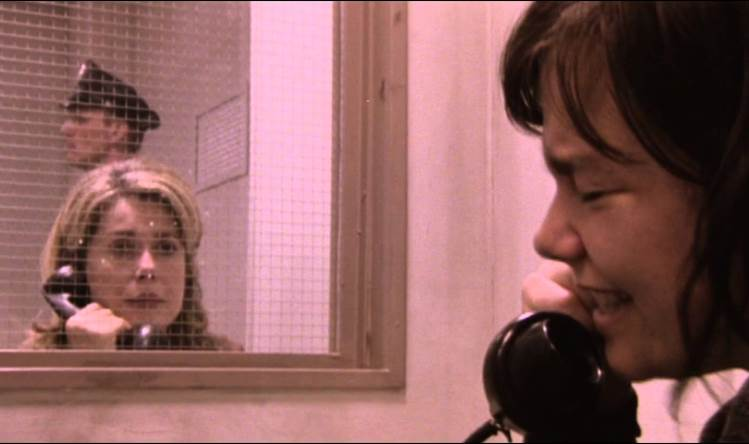
En conclusión, Dancer in the Dark no es una película fácil de ver por lo frustrante que puede llegar a ser, pero es una obra maestra que tiene la capacidad de conectar con las emociones humanas más profundas. A mi me llegó al corazón y puedo decir ha sido una de las películas que me ha hecho valorar mi vida y lo que tengo. Björk hace un excelente trabajo actoral y realmente siento que debe tener mas reconocimiento.
Es una película que me costaría volver a ver simplemente porque ya se su desenlace. Al terminarla, queda un vacío, un extraño sentimiento de culpa, pero también una admiración por el poder del cine para contar historias que nos sacuden y transforman.
In conclusion, Dancer in the Dark is not an easy film to watch because of how frustrating it can be, but it is a masterpiece that has the ability to connect with the deepest human emotions. It touched my heart and I can say that it has been one of the films that has made me value my life and what I have. Björk does an excellent acting job and I really feel that she should have more recognition.
It is a film that I would have a hard time watching again simply because I already know its outcome. When you finish it, you are left with an emptiness, a strange feeling of guilt, but also an admiration for the power of cinema to tell stories that shake and transform us.
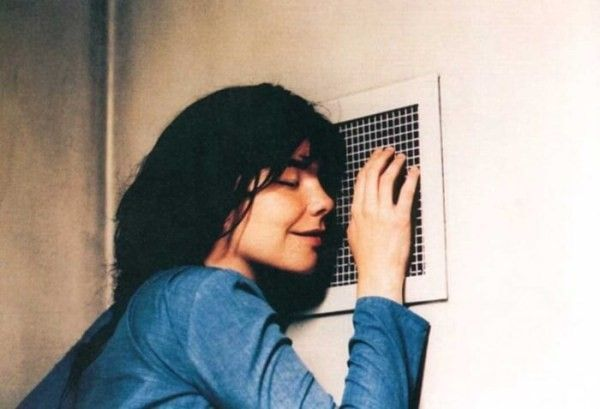
Thanks for reading and watching.
This review is so beautiful and it intrigued me about the movie. Where can I watch it?
Hi. You can watch it on YouTube, but if you have Amazon Prime, you can find it there too. ✨️
Oh thank you. I'll use YouTube then
Posted using CineTV